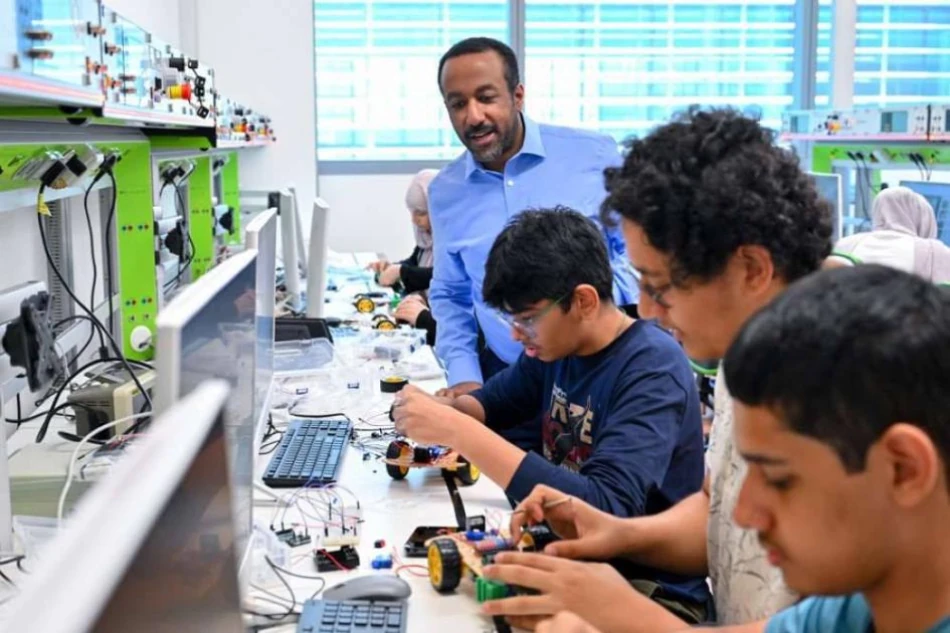
Khalifa University Hosts 61 Students in Groundbreaking "Discover 2025" Program
UAE's Khalifa University Doubles Down on STEM Talent Pipeline with Intensive High School Program
Khalifa University has concluded its two-week "Discover 2025" summer training program, engaging 61 high school students from grades 10-12 across the UAE in hands-on experiences with cutting-edge technologies including Arduino programming, artificial intelligence, and earth sciences. The initiative represents a strategic investment in developing the next generation of STEM professionals as the UAE positions itself as a regional technology hub.
Building Tomorrow's Tech Workforce Today
The program, held at Khalifa University's main campus, offered students direct exposure to three specialized tracks: Arduino-based programming and communications, artificial intelligence and networking, and earth sciences. Unlike traditional academic outreach, this intensive format provided actual laboratory research experiences and scientific experiments under the guidance of university faculty members.
The carefully selected participants received completion certificates during a closing ceremony, marking their introduction to university-level STEM education. The program's structure—combining technical workshops, practical projects, personal development sessions, and campus life exposure—mirrors successful talent development models seen in countries like Singapore and South Korea.
Strategic Timing in the UAE's Tech Transformation
This educational initiative comes at a critical moment for the UAE's economic diversification strategy. As the country seeks to reduce its dependence on oil revenues, developing local expertise in artificial intelligence, renewable energy, and advanced manufacturing has become a national priority. The UAE's National Strategy for Advanced Innovation 2031 specifically targets making the country among the most innovative nations globally.
Addressing the Regional STEM Gap
The Middle East faces a significant shortage of qualified STEM professionals, with regional studies indicating that technology sector growth consistently outpaces local talent development. By engaging students at the high school level, Khalifa University is implementing a long-term solution rather than relying solely on imported expertise or graduate-level recruitment.
Investment Implications and Market Perspective
From an economic standpoint, such programs represent infrastructure investment in human capital. Countries that have successfully transitioned to knowledge-based economies—including Israel, Estonia, and Taiwan—typically began with substantial educational investments 10-15 years before seeing significant returns in innovation metrics and GDP contribution from technology sectors.
For investors and multinational corporations evaluating Middle Eastern markets, these educational initiatives serve as leading indicators of future talent availability and technological capabilities. The focus on AI and networking specifically aligns with global trends toward digital transformation and smart city development.
Beyond Traditional Academic Outreach
What distinguishes this program from conventional university recruitment efforts is its emphasis on practical application and research exposure. The two-week intensive format allows for deeper engagement than typical one-day campus visits or summer camps, while the laboratory component provides authentic research experiences typically reserved for undergraduate students.
The program's name "Discover" reflects its core mission of fostering scientific curiosity—a critical factor in developing innovative thinking. This approach recognizes that technical skills can be taught, but intellectual curiosity and problem-solving mindset must be cultivated early.
As regional competition for technology leadership intensifies, with Saudi Arabia's NEOM project and Qatar's National Vision 2030 also emphasizing STEM education, the UAE's investment in youth development through programs like "Discover 2025" may prove decisive in determining which Gulf nation emerges as the region's primary innovation hub.
Most Viewed News

 Omar Rahman
Omar Rahman






